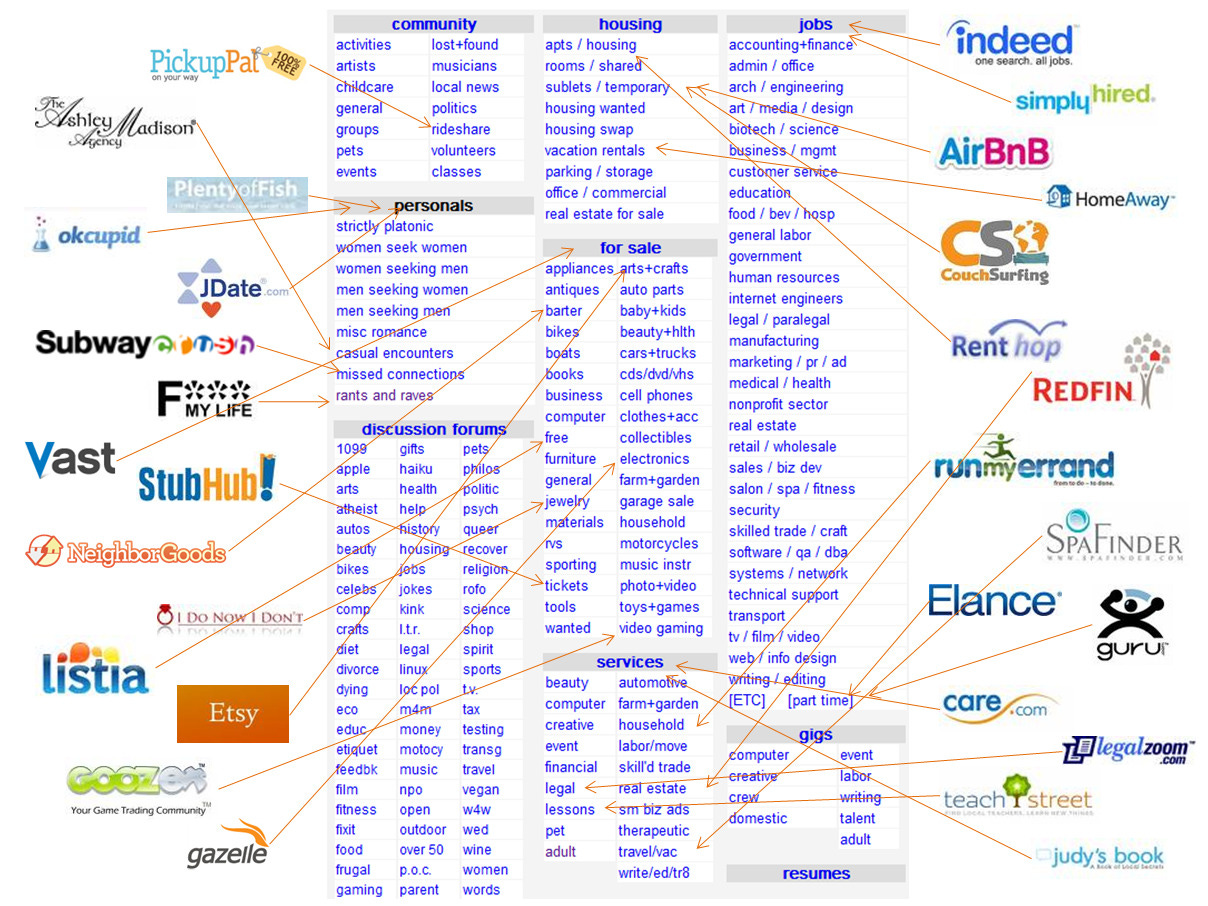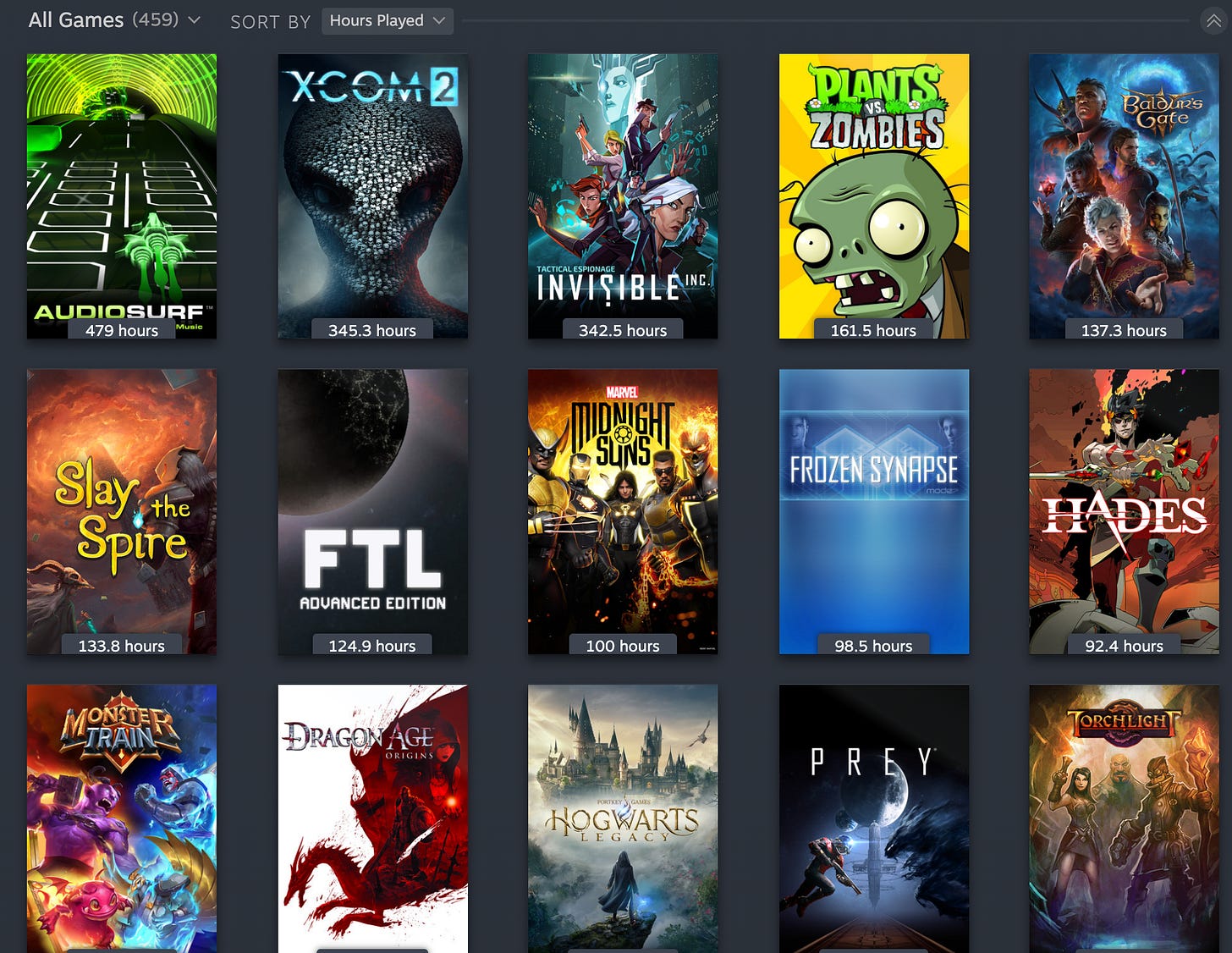Vertical worlds and the future of user generated content
The next big user generated content platform will be a game.
Join the 1000+ founders, investors and operators who get these essays first.
In recent months, I've evaluated maybe a dozen user-generated game platform companies aiming to rival Roblox, Minecraft, or Fortnite, each distinguishing itself in unique ways: AI-first, mobile-first, blockchain-enabled, or a different demographic focus to name a few.
Despite this, I haven't gained enough conviction to invest. With that in mind, I've been pondering what would increase my likelihood of doing so.
Where platform power comes from
We can think of user generated content platforms as a combination of three things:
A set of creator tools (e.g. Unreal Engine For Fortnite, TikTok filters)
A marketplace with creators on one side and consumers on the other
A social space in which they interact (e.g. news feed, live stream, 3D virtual space)
VCs are attracted to platform businesses because once established, they are hard to compete with thanks to network effects, scale economies and switching costs.
Platforms are hard to displace because they enjoy these effects on both sides of their marketplaces: creators stay because it’s where the audience is, and players stay because that’s where their friends and the games they enjoy are.
Roblox in particular has a special moat - they have effectively been granted an exemption from Apple and Google’s ban on operating an “App Store within an App Store”. It’s likely this was thanks to being overlooked upon initial submission, and now being too large and lucrative to remove. Either way, the tech giants are unlikely to make this mistake again, making this valuable exemption a form of cornered resource, in 7 Powers parlance.

How do you compete with a category leader once its moats have been established and these advantages are entrenched? We can look to technology history for some clues.
Horizontal vs vertical platforms
One long-running debate in venture circles is about how vulnerable horizontal platforms are to disruption by specialized vertical newcomers.
An easy way to think about this was popularized by VC Andrew Parker in a now famous 2010 blog post illustrating the number of startups that were trying to unbundle Craigslist.
With the benefit of hindsight, we can look back and see a wide range of outcomes, from Airbnb ($80B market cap) to total failures. Dan Hockenmaier's terrific analysis pinpoints the conditions for a vertical challenger's success:
High customer lifetime value (LTV) within a specific vertical, driven by frequency (like ride-sharing) or transaction size (like travel).
A distinct customer group or supply-demand network that has minimal overlap with the incumbent, reducing its network effect.
A different but preferred mode of interaction that leads to deeper engagement and monetization.
A "slightly better" user experience isn't enough. Silicon Valley's obsession with products needing to be 10x better stems from this.
There is no supply problem in the games industry
What does 10x better look like if the horizontal incumbent we’re talking about is Roblox instead of Craigslist?
To answer this, we can return to our original definition of a platform: creator tools + marketplace + social space.
Marketplace startups must identify which market side—supply or demand—is harder to build and focus there first. Anyone with a Steam account can intuit the answer.
In the games industry, supply isn't the issue; demand is. Capturing audience attention and dollars is the challenge.
Bytedance knows this too, which is why they spent billions on marketing for TikTok to help it reach a scale at which their creator tools and novel UX help them run the flywheel that sustains their moat.
And yet! The number of UGC startups that lead their pitch with some variation of the problem statement “it’s too hard to create content” and focus on the superiority of their creator tools is mind-boggling.
Vertical worlds
So, what’s the answer?
In games, the market landscape is defined by genre - these are our verticals, and also neatly fit the definition of a “different but preferred mode of interaction”.
In other words: the most likely place a successful new user generated game platform will come from is a game, not a set of creator tools.
This is doubly true when it comes to taking on a horizontal incumbent like Roblox, which is as much a digital third place as it is a gaming platform - like stores at the mall, the games are something to do while you’re hanging out with your friends, not the only reason to be there.
The best reason to believe this is true is that it has actually already happened several times before. Many of today’s most popular genres emerged as mods of existing games - people took the tools from these progenitors and used them to create something genuinely new.
Unfortunately for the creators of these progenitors, they were unable to capture any of the downstream value created by the games that emerged from their tools. Pour one out for Blizzard.
To do so, developers will need to create vertical worlds, which we can define as follows:
A novel game that creates a highly engaged audience
Creator tools that allow the creation of new content and mechanics within that world
A marketplace that creates value for all participants
This is a tall order, especially for a startup. But it seems much more likely that the next major game platform will be created by a developer that builds a great game first. It was true for Valve and Epic, and it’ll be true for whoever comes next.





Great piece. The great temptation of UGC is that it alligns with VC-style outcomes in that it's either nothing or huge, and I suspect that's why so many investors are getting behind startups like HypeHype.
The problem is that Roblox took 10 years in the making, taking VC round after VC round. Often, it feels like the repeated pitch "we want to replace X huge games platform" is evidence of an industry thinking in terms of a zero-sum game in a low-growth established market.
E.g. more interesting than an attempt to replace established Battle-Royales, is a view on what comes next in shooters after Battle Royale.
I like the sentiment but I don't know if I agree. Roblox is, I thought, the game of all these with the most players - and while the 'Roblox' aesthetic is a part of what makes it's content special, distinct or unique - I don't think there was ever a 'good game' there to start with. Unless we agree that Roblox is a spin off of Minecraft and the continuity existed their for it's players... which would make some sense.